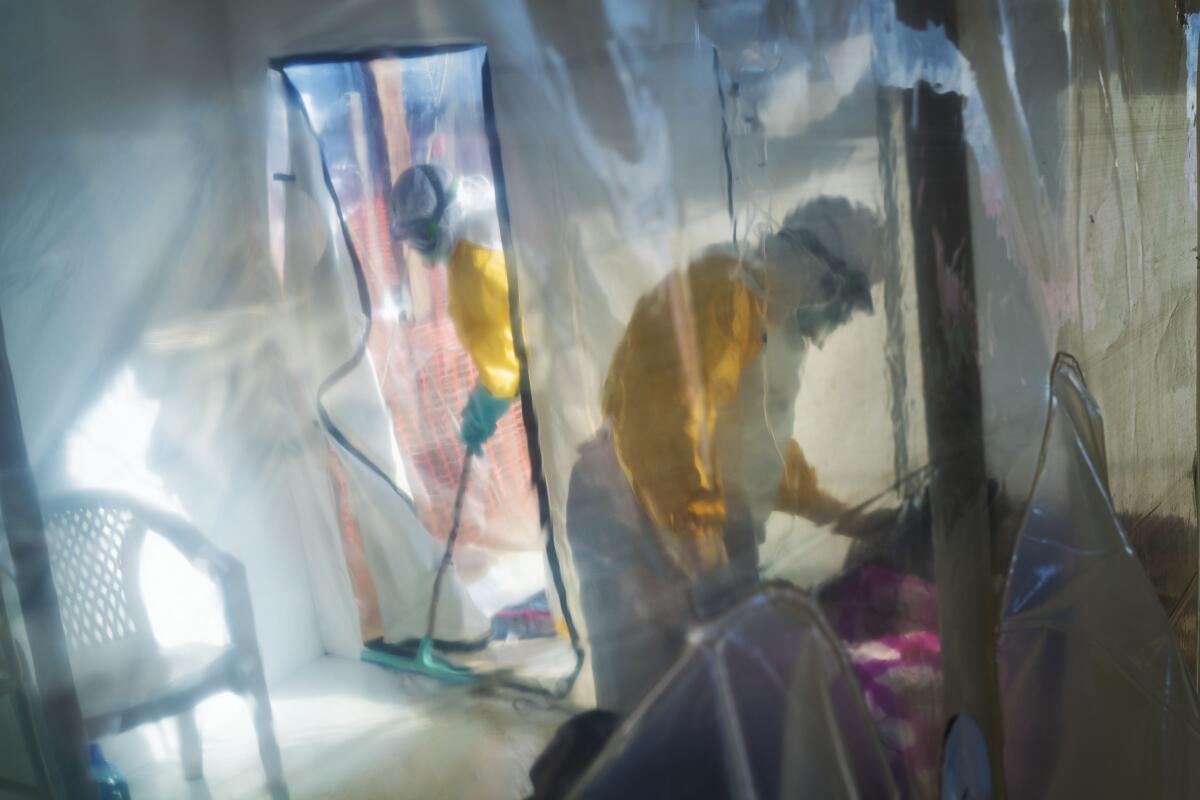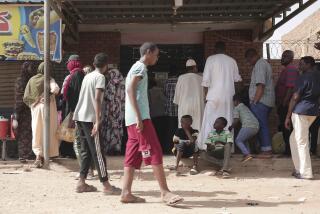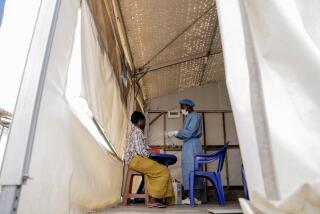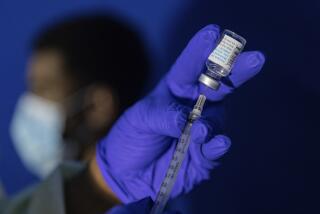Ebola outbreak in Congo is now a public health emergency, WHO declares

The Ebola outbreak ravaging the eastern region of Congo is now serious enough to be considered a public health emergency of international concern, the World Health Organization announced Wednesday.
The decision, recommended by an emergency committee at the global health agency, is likely to trigger more aid for the humanitarian crisis that will soon enter its second year, experts said.
Since the outbreak began last August, more than 2,500 people have been infected and nearly 1,700 of them have died, according to the WHO. That makes it the second-deadliest Ebola outbreak in history.
The virus causes a highly lethal hemorrhagic fever that spreads through infected blood, vomit and sweat. Victims develop leaky blood vessels and circulatory failure, starving the body’s organs of oxygen and potentially leading to shock and multiple organ failure. Uncontrolled vomiting and diarrhea can also cause fatal dehydration.
The international health agency had declined on three prior occasions to declare an international public health emergency, most recently in mid-June.
But the virus’ recent spread to Goma, a city of 2 million people in the Democratic Republic of Congo, formerly known as Zaire, was a primary factor in declaring one now, said Tedros Adhanom Ghebreyesus, director-general of the WHO. In heavily populated regions, it can be nearly impossible to trace and isolate people infected by the virus.
“It is time for the world to take notice and redouble our efforts,” he said, expressing disappointment in the funding shortages over the last year.
The decision Wednesday marks just the fifth time the WHO has declared a public health emergency of international concern, or PHEIC.
“There’s a bit of a ‘finally!’ in the air,” said Dr. Paul Spiegel, director of the Johns Hopkins Center for Humanitarian Health. “It’s a complex decision, but given the geographic developments, it’s time — or probably beyond time — to declare a PHEIC.”
Experts worried the move could spark unintended economic and political consequences from other countries, including travel bans and trade freezes. Hostile reactions like these have worsened conditions during previous outbreaks, making it harder to get personnel and supplies into the hot zone.
“WHO does not recommend any restrictions on travel or trade, which, rather than stopping Ebola, can actually hamper the fight,” the agency chief said Wednesday. “Closing borders could have disastrous consequences.”
The head of the WHO’s emergency committee, Dr. Robert Steffen, was careful to emphasize that although the outbreak is of international concern, the threat is currently limited to Congo and its neighbors.
“This is still a regional emergency, and by no means a global threat,” he said in a news conference.
The outbreak’s epicenter in North Kivu and Ituri is a heavily populated area marked by decades of political instability and violent conflict. More than 100 separate armed rebel groups have sparred for control of the mineral-rich region in recent years. Kidnappings and sexual violence displaced at least 300,000 people in June alone, according to the United Nations.
The Trump administration has banned experts from the Centers for Disease Control and Prevention from entering the region, citing security concerns. Insurgents have launched more than 150 attacks on health workers so far this year, causing groups like Doctors Without Borders to shut down its treatment centers. Each violent uprising has been followed by a surge of new infections.
“Among the worst-case scenarios is Ebola getting into South Sudan, given the complete lack of infrastructure,” Spiegel said. “Uganda is well-prepared and trained, but if it takes hold in Goma — or Rwanda, and then travels beyond by air — it could really spread.”







